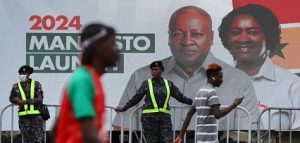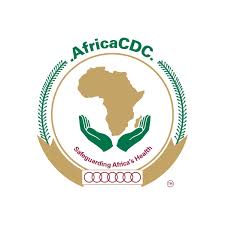Although Ghana is one West Africa’s economic powerhouses, in recent years it has struggled with high debt, coupled with a weakened local currency. In November, inflation hit 23 percent for November – on the rise for the third month in a row.
Dissatisfaction at the country’s economic situation is pushing many young people to vote for the first time. According to the 2021 population census, Ghana has a population of 31 million, with 35% aged 0 to 14 years old and 38% young people between 15 and 35 years old.
“We need somebody who can tackle the very fundamentals of our economy. The unemployment, the inflation, the devaluation of our cedi. This is the kind of person we need as a leader, and that is what has informed my decision to actually cast my vote on Saturday”, says student David Tapi.
Political parties push for the economy
With 18.7 million registered voters, political parties know full-well that capturing the youth vote is key to a win.
“If you look at the demographics of Ghana, like most African countries you have a youthful population, yet most of them are unemployed… the two political parties recognise that and are trying to find a way to get the young voters on their side”, says Lord Mawuko-Yevugah, professor of Politics and International Relations at the Ghana Institute of Management and Public Administration.

In this election, Ghana’s Vice President Mahamudu Bawumia of the incumbent New Patriotic Party is running against former President John Mahama, leader of the opposition, the National Democratic Congress. In their final campaign rallies on Thursday, both candidates pitched their parties as the answer to Ghana’s economic woes.
Bawumia, a former deputy governor of the central bank, promised to build on the outgoing administration’s efforts and stabilise the economy. “I know what I want to do from day one in the presidency,” Bawumia, 61, told cheering supporters in Accra.
Mahama, on the other hand, restated his promise to “reset” the country on various fronts. “We need to reset our democracy, governance, economy, finances, agriculture, infrastructure, environment, health sector, and all that we hold dear as a people,” the 65-year-old former president said.
Other economic concerns
In addition to economic hardship, illegal gold mining — known locally as galamsey — is a major source of concern in Ghana, triggering protests in recent weeks.
Ghana is Africa’s top gold producer, but illegal gold mining – which pollutes rivers and the environment – has spiked as people become more desperate for a better life.
A total of 12 candidates are running to become Ghana’s next president, but these elections have historically been a two-horse race – and this time is no different.
Ghana’s current President Nana Akufo-Addo was elected in 2016, amid widespread discontent at the ruling National Democratic Congress party. Months of intense power shortages and high profile corruption scandals led to widespread discontentment with President John Dramani Mahama, who was in power at the time.
Mahama is now fighting for his comeback and posited to win.
Despite this – whoever the winner is – addressing the country’s economic crisis remains a tall order.




